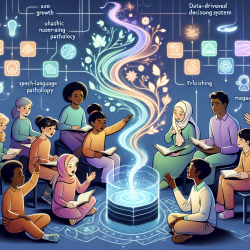Understanding Vaccine Hesitancy in Neurodivergent Communities
In the wake of the COVID-19 pandemic, the need for effective vaccination strategies has become more critical than ever, especially within neurodivergent (ND) communities. A recent qualitative study titled A Qualitative Investigation on COVID-19 Vaccine Hesitancy in Neurodivergent Communities sheds light on the barriers and facilitators influencing vaccine uptake among these populations. This blog explores the study's findings and offers insights for practitioners to enhance their approach to vaccine communication and advocacy.
Key Findings from the Study
The study conducted in-depth interviews with medical professionals, caregivers, and individuals within the ND community to identify the major themes surrounding vaccine hesitancy. The analysis revealed three primary categories:
- Barriers to Vaccination: Misinformation, perceived vaccine risk, sensory sensitivities, and structural hardships were identified as significant obstacles.
- Facilitators to Vaccination: Access to accurate information and the role of trusted healthcare providers were crucial in building vaccine confidence.
- Suggestions for Improvement: Tailored communication strategies and accommodations for sensory sensitivities were recommended to enhance vaccine uptake.
Implementing Study Outcomes in Practice
For practitioners working with ND communities, the study's findings offer valuable insights into improving vaccine communication and advocacy:
- Combat Misinformation: Practitioners should actively direct families to reliable sources of information, such as the CDC, to counteract misinformation.
- Address Sensory Sensitivities: Accommodations such as quiet, calm environments and the use of distraction tools can help alleviate anxiety related to medical procedures.
- Enhance Communication: Open, non-judgmental dialogue with patients and their families is essential. Practitioners should take the time to address concerns and provide clear, evidence-based information.
Encouraging Further Research
While the study provides a foundation for understanding vaccine hesitancy in ND communities, further research is needed to develop comprehensive strategies that address the unique challenges faced by these populations. Practitioners are encouraged to contribute to this growing body of research by exploring innovative communication techniques and interventions tailored to ND individuals.
To read the original research paper, please follow this link: A Qualitative Investigation on COVID-19 Vaccine Hesitancy in Neurodivergent Communities.










